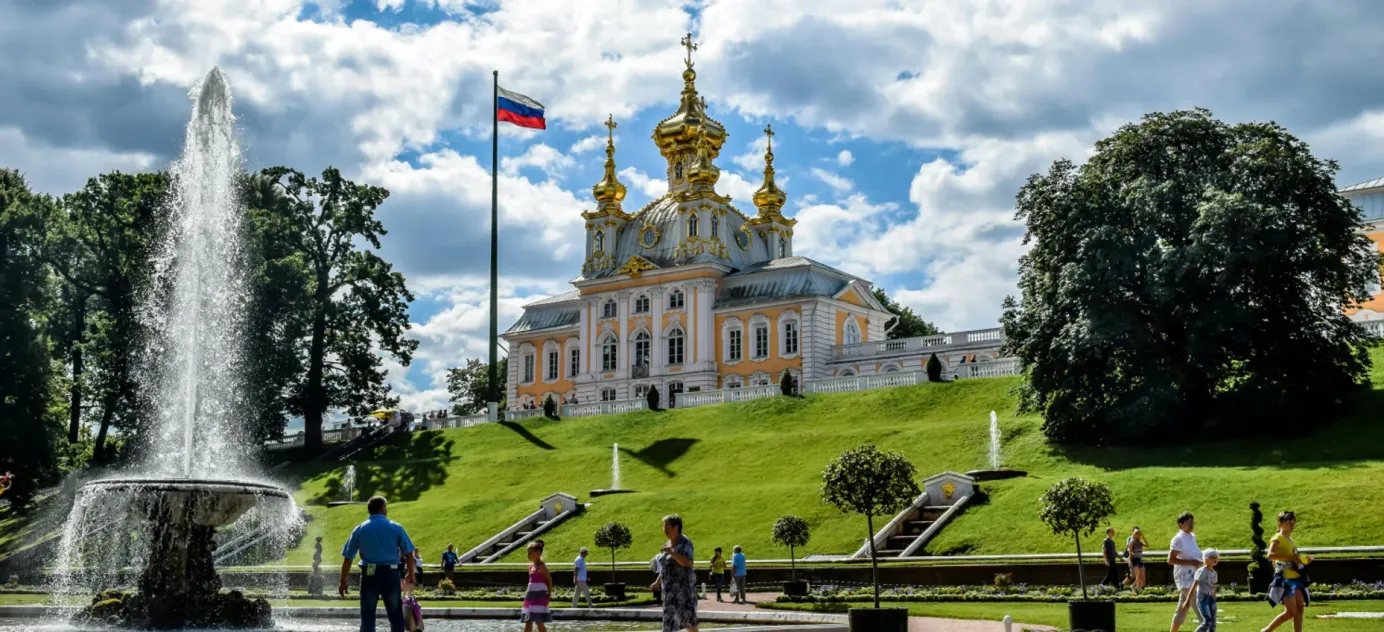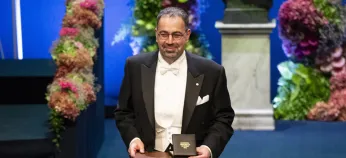
THE BELL WEEKLY: Icon Giveaway
Hello! This week our top story is President Vladimir Putin’s decision to return a historic religious icon to the Russian Orthodox Church. Then we turn to how Russian propagandists have tried to portray the capture of Bakhmut as a significant military victory for the country’s Armed Forces. And, finally, we take a look at the Russian authorities’ decision to designate Greenpeace as an “undesirable” organization.
Putin hands an ancient icon over to the Russian Orthodox Church
President Vladimir Putin responded to “numerous requests from Orthodox worshippers” and donated the famous “Trinity” icon to the Russian Orthodox Church last week. The 15th-century piece is believed to be the work of religious artist Andrei Rublev. Many artists and experts warned against the handover, claiming that the church is unable to adequately care for a unique and fragile work of Russian art. They fear it will, ultimately, be destroyed.
- The Trinity is a symbol of Russian icon painting, explained Natalya Komashko, former scientific secretary of the Andrei Rublev Museum. As well as being one of the best-known examples of ancient Russian art, it is also one of the most revered images of the Orthodox faith.
- The icon was initially kept at the Trinity Lavra of St. Sergius, not far from Moscow. In 1929 it was acquired by the Tretyakov Gallery, the leading museum of Russian art, and after several years of restorative work, it was displayed in Moscow. During World War II, it was evacuated to the Siberian city of Novosibirsk to protect it from being destroyed by bombing. At that time, it was displayed in the city’s opera house.
- The Orthodox Church has spent many years trying to return the Trinity icon. At the end of the 2000s, the Church unsuccessfully requested the icon be displayed at the Trinity Lavra of St. Sergius for a few days. In July 2022, the icon was returned to the monastery for the first time. Shortly afterward, the Church asked for another loan visit to celebrate the 600th anniversary of the discovery of the St. Sergius of Radonezh relics. The Tretyakov Gallery’s directors opposed this move because the icon needs to be preserved under strictly controlled temperatures and humidity. When the icon was returned to the museum, experts found “61 significant changes.”
- The handover of the Trinity icon to the Russian Orthodox Church was criticized by icon specialists and experts in ancient Russian culture. Lev Lifshitz, head of the department of ancient Russian art at the State Institute of Art Studies said that the transfer of the icon puts its safety at risk. “We can assume that the ‘Trinity’ will be lost,” he warned. Russian medievalist Oleg Voskoboinikov wrote that the authorities were trying to use “the return of the icon to the church” as a talking point to “rally the nation” and “do away with soulless intellectuals and unbridled museums.” Yelizaveta Likhacheva, director of the Pushkin Fine Art Museum in Moscow, also criticized the handover. She fears the icon may simply “fall apart.”
- By law, Putin does not have the right to decide the fate of the “Trinity,” said Komashko, who previously worked at the Andrei Rublev Museum. “In Russia, a great deal is done on a nod and a wink, and not according to the law,” she explained. The Tretyakov Gallery’s director, Yelena Pronicheva, whose father held senior positions in the Federal Security Service (FSB), has made no comment on the transfer.
- Apart from the Trinity icon, the church also recently received another piece of Russia’s heritage from the Ministry of Culture – the tombstone and shrine of Alexander Nevsky, the saint and prince who went down in history as the knight who defeated the Livonians in the battle on the ice at Lake Peipus in 1242. The shrine was previously kept in the Hermitage Museum in St. Petersburg.
- Hermitage director Mikhail Piotrovsky, an active supporter of the war in Ukraine, said that “in the current geopolitical situation, the sacred, symbolic significance of the shrine is greater than its artistic value.” He believes that the shrine should fulfill its “symbolic function” to bring about “our victory” (apparently referring to Moscow’s desired victory in Ukraine).
Why the world should care
From day one, the Russian Orthodox Church has supported Russia’s invasion of Ukraine. The church has joined forces with propagandists to cast Russia as a force against “evil”, “satanism” and “Nazism” in Europe. It seems that these efforts are bearing fruit, as the church is rewarded with valuable cultural artifacts like the Trinity icon.
The Bell is now listed as “a foreign agent” in Russia: our website is blocked, we can no longer raise money through advertising, and our business model is in ruins. Journalists in Russia face greater risks than ever before. Repressive new laws threaten up to 15 years in jail for objective reporting.
However, we are not about to give up. This newsletter is our newest project. It presents an in-depth analysis of the Russian economy, which has survived the first year of the war but is becoming ever more secretive. We will try and shed some light on what’s going on. Each edition will tackle a part of the big question: how long can the Russian economy endure under sanctions and when will the Kremlin run out of money for its war?
We don’t want to have to charge a fee for our newsletters. However, if The Bell is to continue its work, we need your support.
You can make a donation here. It will help our journalists continue investigating stories, breaking news and publishing newsletters.
State propaganda casts capture of Bakhmut as a big win for Russia
Wagner Group founder Yevgeny Prigozhin and Russia’s Defense Ministry announced over the weekend that they had taken complete control of eastern Ukraine’s Bakhmut after a grinding nine-month battle for the city. The Ukrainian authorities denied the claims and said that fighting in Bakhmut continued. That did not stop Russian propagandists from hailing the complete capture of the town as a major victory for Russia.
- On Saturday, Prigozhin’s press service published a video in which he claimed that Bakhmut had fallen and his troops alone took part in the decisive assault. The following day, Russia’s Defense Ministry also reported the capture of the town, but added that Wager fighters took Bakhmut with the help of artillery and air support from the Russian army’s regular forces. Putin congratulated the mercenaries and regular soldiers via Russia’s news agencies. In the morning, the message was repeated on the Kremlin website. Putin promised everyone involved would receive medals.
- When the first Russian statements about the capture of Bakhmut emerged, Ukrainian President Volodymyr Zelenskyy was visiting Japan. At a press conference, he said that Ukrainian forces were still fighting for the city.
- Russian propaganda channels ignored Prigozhin’s initial claims on Saturday. But the next day, the “capture” of Bakhmut made all the state-owned news headlines. “Artyomovsk has been liberated. An event of historic proportions. An important strategic point and a huge tactical success for our forces,” reported the morning news on state-owned Channel One. In other broadcasts, presenters said that “taking Bakhmut has great strategic significance” and Ukrainian soldiers “will not be told the truth [about the fall of the city] for a long time.” Other propaganda outlets claimed that “taking Bakhmut opens a road to Seversk and Kramatorsk for the Russian army.” Several war correspondents compared the capture of Bakhmut to the capture of Mariupol exactly a year ago and called it “Russia’s first big victory this year.”
Why the world should care
Russia is desperately seeking some kind of victory – and Russian propaganda has hailed the capture of Bakhmut as precisely that. However, the city has little strategic value, according to military experts. After 224 days of fighting, almost nothing remains of Bakhmut, with Zelenskyy saying “Bakhmut remains only in our hearts.”
Russia bans Greenpeace
Russia’s prosecutor general designated Greenpeace as an “undesirable” organization Friday, which effectively bans its members from working in Russia. According to the authorities, Greenpeace “poses a threat to the foundations of constitutional order and security” in the country, and, since the start of the war, it has “engaged in anti-Russian propaganda,” called for sanctions and sought “to change power in the country in an unconstitutional way.”
- After being designated “undesirable,” Greenpeace announced the closure of its Russian branch. According to its members, they were branded “undesirable” because they tried blocking several projects that would be ruinous to the environment, such as opposing laws that would allow for the destruction of forests on the shores of Siberia’s Lake Baikal.
- Apparently, the decision to ban the environmental campaigners was a surprise even within the Kremlin, independent media outlet Agentstvo reported. For example, Greenpeace’s Sergei Tsyplenkov still sits on the presidential commission for human rights. So, ironically, Putin has taken advice from a representative of an undesirable organization.
- Greenpeace has worked in Russia for more than 30 years. During that time, the organization helped to set up six UNESCO reserves in the country, half of which it successfully defended in court against cases brought by builders and gold miners. In addition, environmentalists fought against relaxations on environmental protections and defended Lake Baikal – the world’s largest freshwater lake – against poachers and pollution.
- Greenpeace is the second environmental organization to be targeted by the Russian authorities this year. In March, the Justice Ministry added the World Wildlife Foundation (WWF) to its register of “foreign agents” following criticism from pro-government environmentalists. In November, Russian deputies proposed designating Greenpeace as an undesirable organization. However, it is not clear whether the new status is linked to that request.
Why the world should care
“I have a positive relationship with everyone that protects the natural world,” Putin said 10 years ago. But today, a good relationship with the president is not enough to protect any foreign organization from persecution within Russia.





